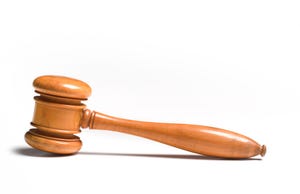THE MAKING OF A REGULATORY PROFESSION
May 1, 1996
Medical Device & Diagnostic Industry Magazine | MDDI Article Index
Originally published May 1996
Richard E. Greco
President, Regulatory Associates, Inc. (Clarence, NY)
In 1972, the executive management of my company assigned me the task of forming a corporate regulatory affairs department. The goals I adopted as part of this task were as lofty as they could be, and ranged from ensuring that all company departments consistently complied with regulatory requirements to promoting the company as one that satisfied both the letter and the spirit of those requirements. I imagined that this new depart- ment would act as the regulatory adviser for all corporate operations while also serving as the liaison to regulatory agencies, which--because our company made drugs and special infant dietary supplements as well as medical devices--included not only FDA but the Department of Agriculture, the Drug Enforcement Agency, and the Bureau of Alcohol, Tobacco, and Firearms.
It soon became apparent, however, that creating such an expert, credible, and effective department would require benchmarks and resources that had not yet been created. There was no forum in which to network with other professionals in the field, nor were there any schools to teach the subject. Equally important, there was almost no interaction between industry and the regulatory agencies, such as FDA, that might have provided guidance.
Throughout most of industry in the years leading up to the Medical Device Amendments of 1976, regulatory affairs were a corporate afterthought. Many companies lacked personnel who were formally designated to handle regulatory affairs, and employees were shuttled in and out according to who had the time available. As a result, despite the voluminous amount of work and critical responsibilities assigned to regulatory affairs personnel, they were not recognized as professionals. Regulatory affairs personnel often "got no respect" from company management, and frequently there was no truly rewarding career path available to them.
These were the circumstances that led to the establishment of the Regulatory Affairs Professionals Society (RAPS). Despite the apparent need, however, the group did not have a very auspicious start. Only 60 device manufacturers indicated an interest in helping to create the society, and only 6 company representatives attended the first meeting in December 1974. Nevertheless the organizers were determined to go forward, and the society was finally incorporated in 1976.
Those who started RAPS understood the enormous responsibility that was being placed on the shoulders of their fledgling profession. At the time, however, many in top management underestimated the time, effort, and expertise required for their companies to meet regulatory requirements. For many of these companies, the need for an organization to support regulatory affairs professionals was only brought into focus with the enactment of the Medical Device Amendments of 1976.
The goals that RAPS adopted at its founding remain basic to its mission: to educate members and promote them as regulatory professionals, to provide a forum for networking, to enhance members' career opportunities, and to improve members' status within their companies. To meet these goals, the society established a certification program that has helped to create a profession where none existed before.
Over its 20-year history, RAPS and its members have participated in bringing about many changes in the device industry. Interaction with FDA has improved, in part because staff from the agency joined the society and began to give presentations to its membership. Many regulatory affairs professionals have become part of their companies' executive management. And women, who were previously absent from the field, have found enormous opportunities in it. To meet the needs of a rapidly globalizing industry, the society has also branched out to hold meetings overseas.
These milestones mark the growth of RAPS from a regional association to an international professional society of more than 6000 members who are today recognized as professionals pursuing well-paying careers. The work of those professionals has helped to give shape to the device industry over the past 20 years, and will continue to be an important factor in the future.
Richard E. Greco was the founder of the Regulatory Affairs Professionals Society (Rockville, MD).
You May Also Like
.png?width=300&auto=webp&quality=80&disable=upscale)

